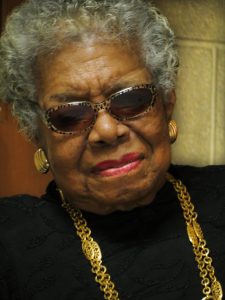
You’ve reached that point. That sweet spot where you finally feel ready to share your story. You’re focused, determined, and set to begin writing.
But how do you start? Writing doesn’t come easy to everyone (I had to rework this article a few times myself). So what tips and tricks can help you start writing your story?
LifePosts compiled some advice from famous authors that will give you encouragement and helpful ideas to kick off a great story of life, love, or loss for your LifePost – or anything else. And if you have any advice of your own, feel free to add it below!
1. “Find your space. When do you plan to write? Where will you do it? And how? Anyone who doesn’t work this out in advance is doomed to frustration, and is hurting their chances of success.”
– Brett Arends, Forbes Magazine
Part of successful writing is being comfortable, knowing things like what time of day you are most creative or focused, if you prefer to work standing, sitting, or lying down, and much more. If you don’t know at this point what works best for you, try different things out. Go to a coffee house or a quiet library, and be creative. You’ll soon learn what most helps you to focus and write.
2. “Try to come up with a one paragraph summary of your topic and the core message.”
– Glen C. Strathy, How to Become a Writer: Where to Start
If you’re struggling to get through the first section of your own story, write a very short summary and the main message that you want your readers to carry away. Using this to keep the “big picture” in mind will help you stay on course.
3. “You can’t wait for inspiration. You have to go after it with a club.”
When you are starting to create your story online, don’t wait for that perfect moment when inspiration comes and sweeps you away because it may never happen. Virtually all successful writers know the “secret” to their success is simply sitting down and starting to put words and thoughts together. As famed author Jack London notes, one should not wait but instead “go after it”!

4. “The idea is to write it so that people hear it and it slides through the brain and goes straight to the heart.”
Start writing about your journey – or the life of the person you want to honor – with all your emotions fully engaged from the very beginning. Close your eyes and remember (or imagine) how you (or they) felt in the moment that you are describing. This may mean that you type out phrases or just single words as you begin. This is completely okay and even healthy. Give the readers the raw understanding of your story by keeping focus on the emotions.
5. “Abandon the idea that you are ever going to finish…Write just one page for each day, it helps. Then when it gets finished, you are always surprised.”
One step at a time = one page/paragraph/sentence at a time. Small steps together will make a beautiful whole.

6. “The scariest moment is always just before you start.”
As one of the world’s most notorious horror writers states above, the hardest moment of writing is precisely at the very beginning. Remember that you are empowering yourself by merely starting to write down your story. Take a deep breath and start pounding that keyboard or pen. It doesn’t have to be perfect, precise, or even grammatically correct. It just has to start.
7. “Writer’s block really originates from high standards: often, you will sit down to write but not like what you’re producing. The trick to eliminating this? Stop worrying so much over whether or not every little bit you write is a good as it can be. Either way, you are probably going to have to return to your draft several times [and] revise it: don’t attempt to revise every line as you write it.”
– Rory Marinich, Lifehacker
Keep in mind that you will have time to go back (and certainly should!) to revise what you’ve written down before anyone else reads it. Keep the risk of writer’s block at bay by just relaxing. Tell your story as if you were talking to your closest friend. Express yourself naturally and honestly and save your critical editor’s eye for a later spit and polish.
8. “Interview your family and friends to gather special details together that you may have forgotten.”
– My own quote, Editor at LifePosts
As someone who has worked to recapture her own family story, I always value the insights and memories that my loved ones have. Their different voices add a special layer to the bigger picture that I would not have merely on my own. If you’re feeling stuck, try talking about memories with family or friends who can offer new points of view.
Hopefully these tips will provide helpful insights to make sharing your own story as easy as possible. Go to it now, and best of luck in your writing!


